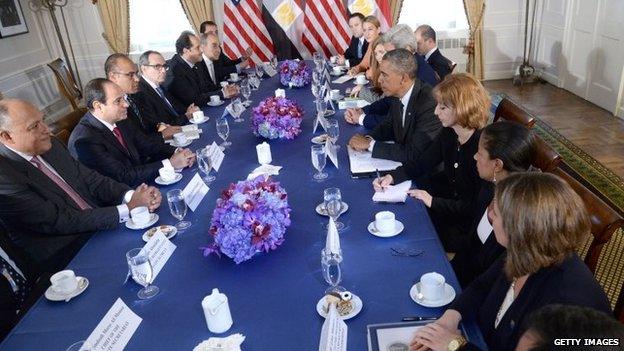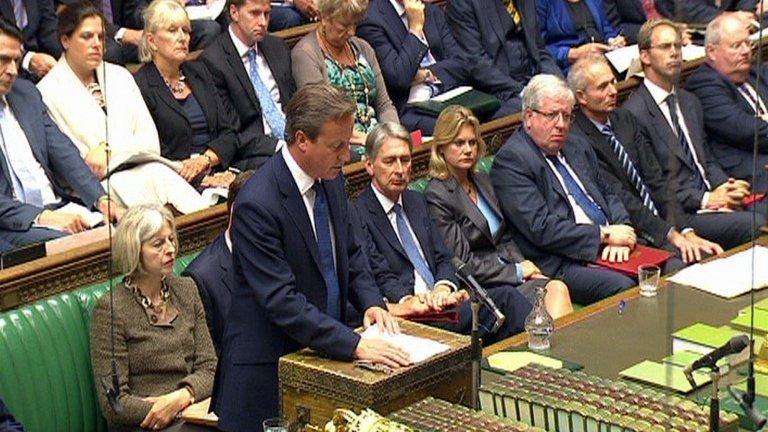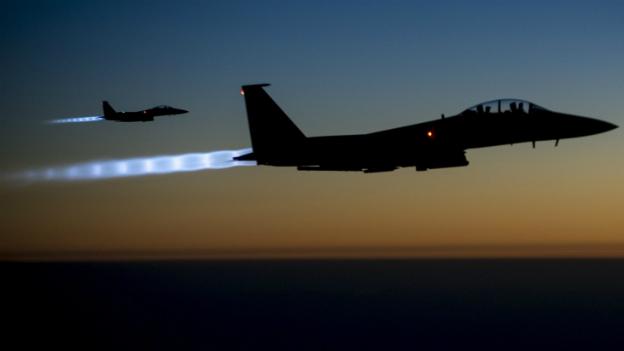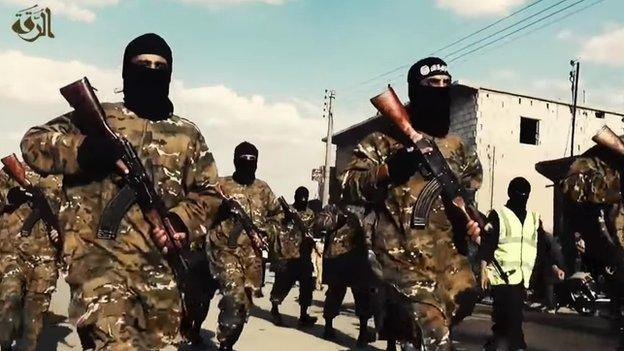Islamic State: What does Egypt bring to international coalition?
- Published
Egypt's foreign minister says it can play a key role without offering military support
The United Nations General Assembly provided a chance for scores of key meetings between world leaders on its sidelines.
Interestingly, of all those held by US President Barack Obama, the longest was reckoned to be with Egypt's President Abdul Fattah al-Sisi.
So why the long get together - more than an hour - when Egypt is not contributing military forces to the coalition against the self-proclaimed Islamic State (IS)?
There was much to talk about.
Critical player
US-Egyptian relations are emerging from a period of deep freeze following General Sisi's seizure of power in the summer of 2013.
And the US president had not met an Egyptian leader for more than three years.
Egypt has long been one of the critical players of the Arab world.

The Egyptian and US presidents held talks in New York
It is trying to push Israel and Hamas beyond their current Gaza ceasefire, towards something more permanent.
It is also involving itself, discretely, in Libya's civil war, trying to thwart the triumph of Islamist militias.
In Egypt's Sinai peninsula there is also a serious problem with jihadist militants, who have been attacking security forces, and kidnapping travellers.
Concern over Libya
When it comes to President Obama's new coalition against IS - also known as Isis and Isil - there is also much that the Egyptians could bring.
Five years ago, President Obama called to a new kind of relationship in his Cairo speech.
However returning to business as usual would appear to mark an American realisation that the US will have to do business with those it has to, not just with those it might prefer to.
Sameh Shoukry says there is the international will to combat IS
Newsnight had the chance to sit down for an interview with Sameh Shoukry, Egypt's foreign minister, during the General Assembly.
He says that he's hoping Israel and Hamas can move towards a deeper accommodation, noting there's already been agreement to step up the import of materials into Gaza for its reconstruction.
He also told us of his "deep concern" about events in Libya.
'Cause for optimism'
Mr Shoukry says that here too a recent agreement gives some cause for optimism.
Most of our conversation however turned on the current threat to Middle East peace posed by the rise of IS in Iraq and Syria.
Such was the gravity of this development that, he implied, old differences would have to be cast aside in order to combat it.
He also insisted Egypt had a key role to play even though it is not contributing air support or troops on the ground.
- Published26 September 2014

- Published26 September 2014

- Published26 September 2014
